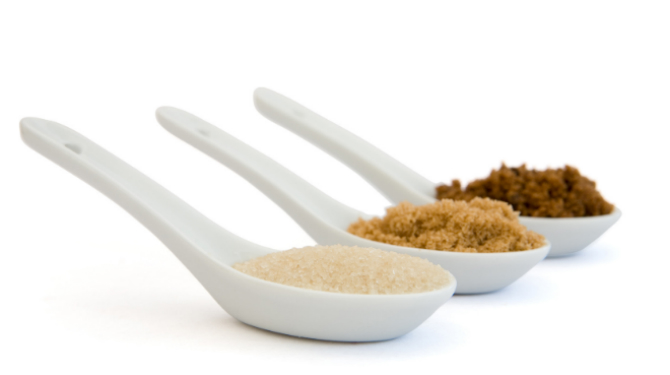
Myth or Fact: Avoid sugar and switch to Jaggery

We all turn to nutritional articles secretly hoping it has something we want to hear. Being the slaves of our sweet tooth, we often indulge in sweets, and these encounters leave us with more guilt than the momentary pleasures. What if you find out that all sweets are not all that bad as against their infamous reputation? Read on, you will find some interesting facts, if not a guilt free salvation to your sweet craving.
Nutritionist, Food Manufacturers, Heath Practitioners and all those with the tiniest fitness centric bone, have won the battle of defaming fats as prime contributors to the heath issues in the current times. And now sweet stuff is the new scapegoat for our country’s obesity, heart and health problems, and in order to be healthy, we are told we need to be avoiding it altogether.
Let alone the scientific anecdotes, traditionally too, each one of us has had our grandmothers saying that foods like sweets, oil and rice make us fat. This idea is so deeply ingrained in our cultural psyche, that few people even question it. But is it really true? All the information from different arenas leaves us too full of knowledge or in simple terms confused enough not to be able to practice it.
As a result of the brimming confusion, few of us have evolved into a racist species, which are known to discriminate the whites and blacks of the food world; Brown rice v/s polished rice, Maida v/s whole wheat and the lesser known bias between sugar v/s jaggery. This evolutionary reasoning has set our inclination towards the browns of this food world, and while doing so we are often missing out on some important facts.
Jaggery and sugar, are sisters (speaking generically), however, these sisters are not alike. These differences must be kept in mind for their proper use. Let us have a look at these differences. Jaggery is made from concentrated sugarcane juice, but the molasses are not separated, as is the case with sugar. While, in the preparation of sugars, the cane juice is "clarified" by the addition of lime, and after further more processing steps after which the cane juices are bereft of its vitamin and mineral banks.
Jaggery has approximately 60 times the mineral content of refined white sugar, predominantly iron. While most of the iron in it comes through processing in iron vessels, other minerals such as Magnesium, Potassium, Calcium, Selenium, Manganese and Zinc come right from the sugar cane juice as it does not undergo refining or bleaching during processing. The corresponding nutrients are present in negligible quantities in white sugar.
Jaggery has several health benefits:
o Energy fuels: Both Sugar and Jaggery are good sources of energy. No wonder we crave a sweet tea/ coffee early mornings and evenings, clearly is our system signaling us for a fuel refill.
o Anemic’s treasure- Jaggery is rich in iron and thus is highly recommended for iron deficiency associated anemia.
o Relaxant: Jaggery has selenium in very high amounts. Thus having this complex sugar relaxes your nerves.
o PMS mate: The sweetness of jaggery releases feel-good endorphins, which offer relief in pre-menstrual syndrome, depression and anxiety. It also helps relieve associated bloating and water retention.
o Relieves flatulence and acidity: Jaggery activates digestive enzymes and speeds up digestion. It breaks and becomes alkaline in the digestive system. That’s why it’s recommended to have some jaggery after a meal. (And now we know why, our Gujrati mums add the savior golden bits of jaggery into their illustrous meals.)
o Asthma: Although it is not clear how, Jaggery also has known to show anti asthmatic properties, easing breathing difficulties. This is good news for people who are sensitive or allergic to pollutants, but are constantly exposed to it.
o Cleanser: It acts as a cleansing agent and cleans the lungs, stomach, intestines, esophagus and respiratory tracts. It also helps expel phlegm, thus offering relief from cold and cough.
o Boosts immunity: The zinc and selenium present in jaggery works on enzyme systems of our body that scavenge free radicals. The phenol in jaggery also has powerful antioxidant effects that helps the body build resistance.
o Regulates blood pressure: The potassium content in jaggery helps keep a check on blood pressure and water retention.
By now you all have a clear idea about the sweetener that should be going into your desserts tonight ( no no we are not suggesting anything yet), courtesy the nutritional supremacy of the golden sweetener over sugar. However, there are some facts one needs to consider before indulging into jaggery laden desserts.
So far as calorific values of jaggery and sugar are concerned, a 100 grams of sugar delivers approximately 398 kcal of energy, while the same amount of jaggery releases 383 kcal. So all the weight watchers out there need to remember that both these sweeteners have nearly the same amount of calories. What’s worse is that in order to attain the same amount of sweetness, we end using higher amount of jaggery in desserts as compared to sugar, this nullifies the tiny edge jaggery has over sugar calorie counters.
Also, a common misconception about jaggery is that it could be safely consumed by diabetics. Interestingly, a study published in the International Journal of Diabetes in Developing Countries showed that jaggery and sugar when consumed, both raise blood glucose levels by approximately equal values. Therefore, it is safe to say that for a healthy person, jaggery is a healthy substitute for sugar. A person with diabetes may occasionally enjoy a jaggery laced treat, however, frequent use is certainly not recommended.
Take home message: There you go. You have the facts in front of you. For a change, in this article we will not pick either of the sweetener for you. We’ll leave the choice to you. Try and incorporate jaggery to some of your sweets this week and see the difference you feel.
It won’t be surprising if we experience times in near future, when the food manufacturers would be bored of the brown/ white rice, omega rich oils and glue our attention towards the golden sweetener. Before they do so, why don’t you take the charge of your health and make your own choice? It’s all about upgrading your choices to feel healthier– as simple as that. Just because trans fats are bad for us, doesn’t mean we should be giving fats up altogether. The same with carbohydrates: a cookie may make you put on weight, yes, but a piece of gudd chikki would do more good than any bad!
P.S – Moderation is the key. The true danger of these sweeteners, be it jaggery or sugar lies in its excessive consumption.










